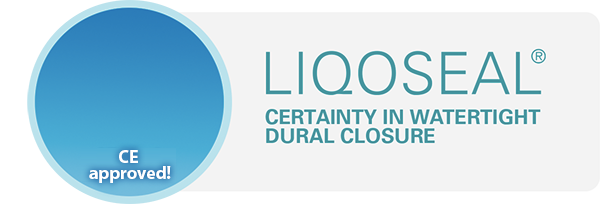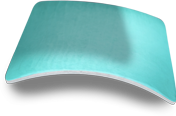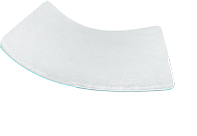Polyganics awarded €1.2 million to complete clinical development of dura sealant patch
First-in-human clinical studies of the device expected to begin in early 2018
Groningen, The Netherlands, 1 December 2017 – Polyganics, a privately held medical technology company that develops, manufactures and commercializes bioresorbable medical devices, today announced it has been awarded funding from the European Fund for Regional Development (ERDF) by the European Union, to support clinical validation of its dura sealant patch. The grant, together with contributions from the city and province of Groningen, totals EUR 1.2 million.
The device has been developed using Polyganics’ proprietary bioresorbable polymers, creating a dressing suitable for resealing the outer membrane (‘dura’) surrounding the brain after brain surgery, minimizing leakage of cerebrospinal fluid (CSF). The dressing has been engineered to encourage tissue regeneration, and to degrade naturally and safely within the body over time, once the membrane has healed. Polyganics is developing its dura sealant patch under a collaboration with the Brain Technology Institute (BTI), located in Utrecht, and Syncom, a contract research organisation located in Groningen.
Following recently completed animal studies of the dura sealant patch, Polyganics is currently finalizing preparations for the start of a clinical study, to demonstrate safety and performance in humans.
Rudy Mareel, CEO of Polyganics, commented: “We are hugely appreciative to the EU, as well as the city and province of Groningen for their support in progressing the device into the next phase of its development. The grant is a great recognition of the potential of this application of our synthetic polymers, and we are pleased to have benefitted from the skills and expertise of both the BTI and Syncom in its development. The work has important implications for improved recovery following brain surgery, including helping to prevent potentially fatal complications such as meningitis.”
Dr Tristan van Doormaal, a neurosurgeon at the University Medical Center Utrecht (UMCU), and leader of the research project at BTI, commented: “This is a completely novel approach to reducing CSF leakage following brain surgery. The recent successful animal studies of the dura sealant patch were very promising, and we expect to see similarly positive results in humans in the clinical studies next year.”
About the dura sealant patch
CSF leakage is one of the most common complications of neurosurgical procedures. Estimated incidence of any type of CSF leakage is in total 10%-15% of all intradural neurosurgical procedures. In approximately 25-50% of all intradural neurosurgical procedures, any adjunct to dural sealing is used to prevent CSF leakage and to allow the dura to heal after surgery. If the quality of dural closure is improved, complications associated with CSF leakage, including meningitis, pseudomeningoceles, impaired wound healing, and subgaleal fluid collection, could be reduced. Effectively sealing dural incisions during surgery is therefore important because it may prevent CSF leakage and related complications.
About Polyganics
Polyganics is a medical technology company with multiple versatile polymer platforms. The Company develops, manufactures and commercializes innovative bioresorbable medical devices that facilitate tissue repair and regeneration.
Polyganics’ portfolio includes products developed in-house and in collaboration with leading medical technology companies and academic centers of excellence. In the Peripheral Nerve Repair (PNR) and neurosurgery field, the portfolio includes three marketed products: VIVOSORB® for minimizing unwanted tissue adhesions after surgery; NEUROLAC® for supporting PNR following hand surgery; and NEUROCAP® for the management of symptomatic neuromas. Products in development include a sealant for the dura membrane and a liver sealant patch.
In 2014, Polyganics sold its Ear, Nose & Throat (ENT) surgery business unit (the NASOPORE® product family including HEMOPORE®, SINUPORE® and OTOPORE®) to Stryker, one of the world’s leading medical technology companies. NASOPORE®, a reliable, easy-to-use, nasal wound care dressing made of biodegradable foam, has been used in over 3.5m procedures globally. Polyganics continues to manufacture the NASOPORE® product range for Stryker.
Polyganics is profitable and privately held. The Company is based in Groningen, The Netherlands, a center of biomedical engineering excellence, in an ISO 13485-certified manufacturing facility. The Company’s polymer platform technologies are protected by a broad portfolio of patents and its products have received clearance from the US FDA, CE-approval, and approval from CFDA and other international authorities.
For more information, visit: www.polyganics.com
Polyganics
Paul Roos, Chief Financial Officer Romke Ribbels, Director Marketing & Business Development
Telephone: +31 50 588 65 88
Email: info@polyganics.com
Instinctif Partners
Dr Christelle Kerouedan / Alex Bannister
Telephone: +44 (0)20 7457 2020
Email: polyganics@instinctif.com




